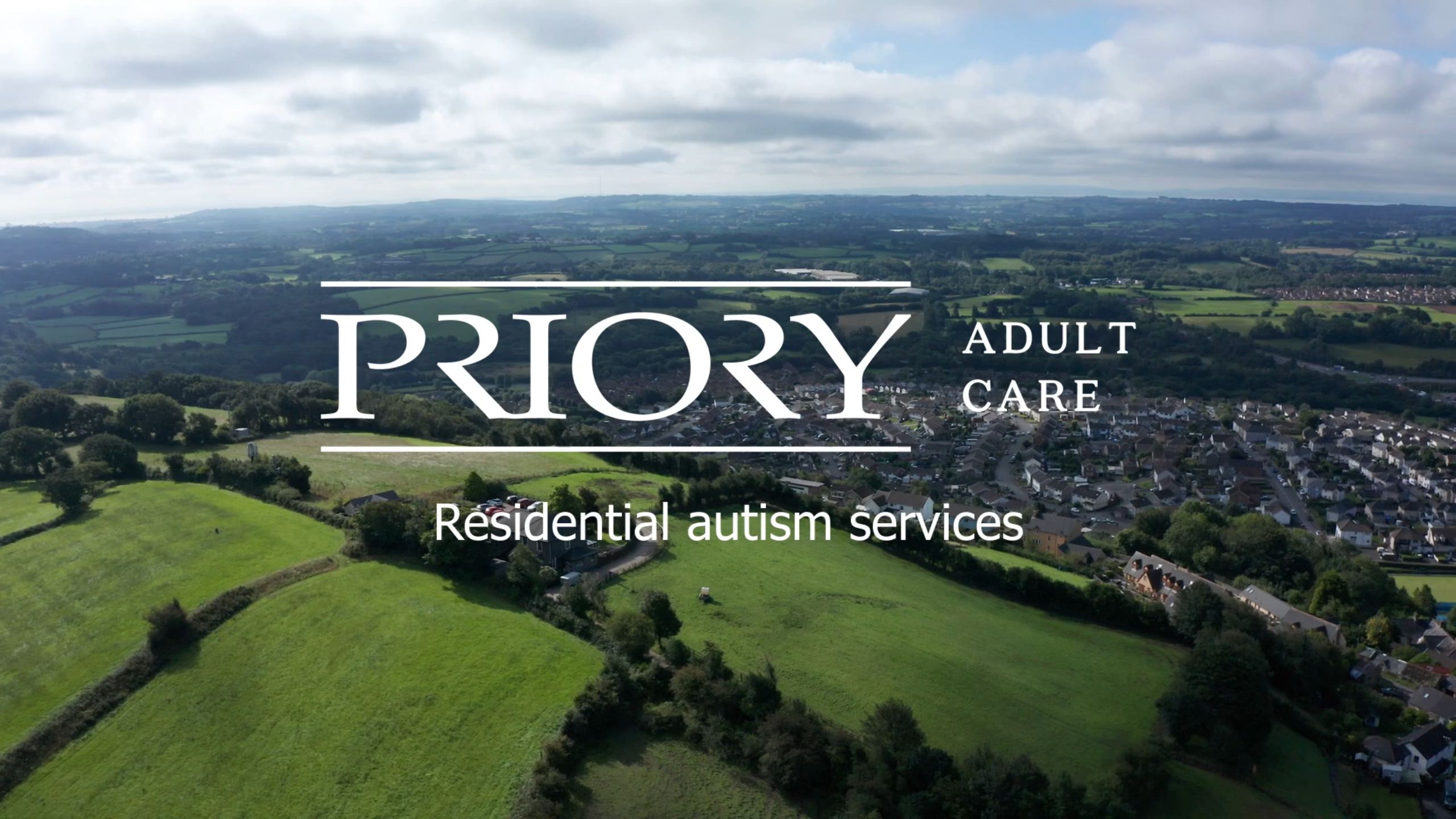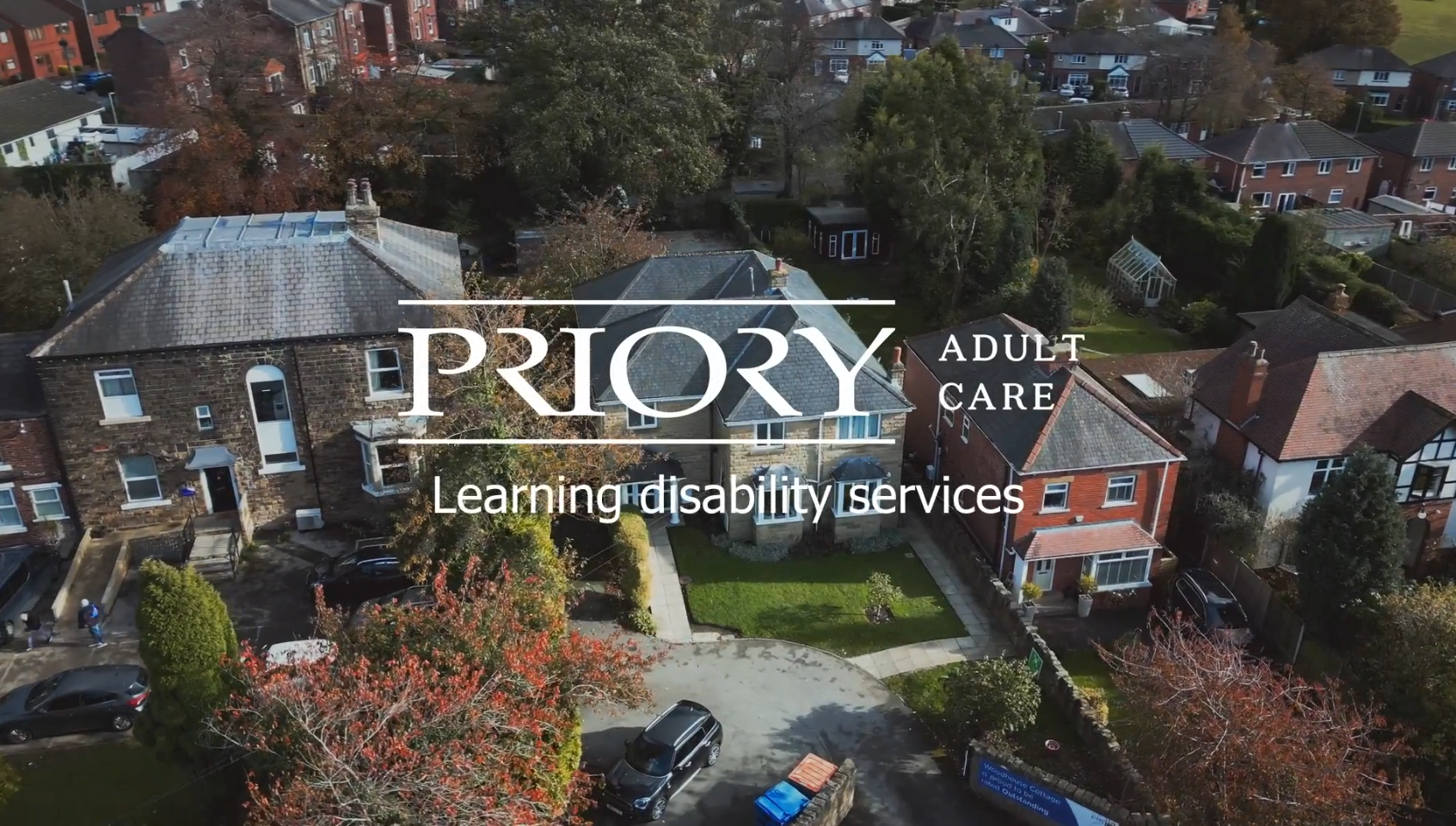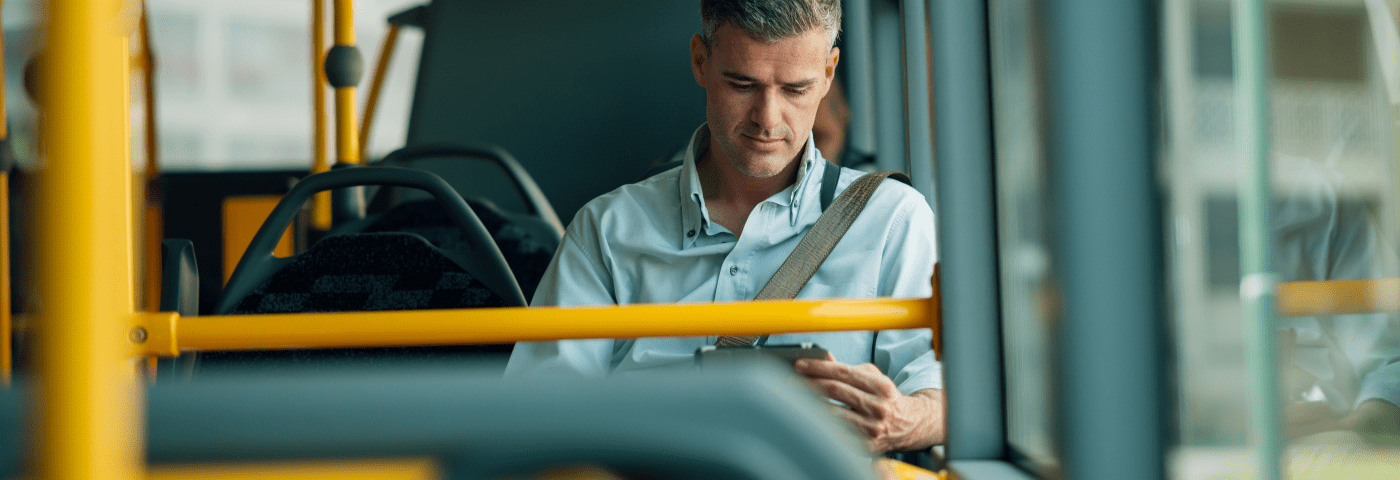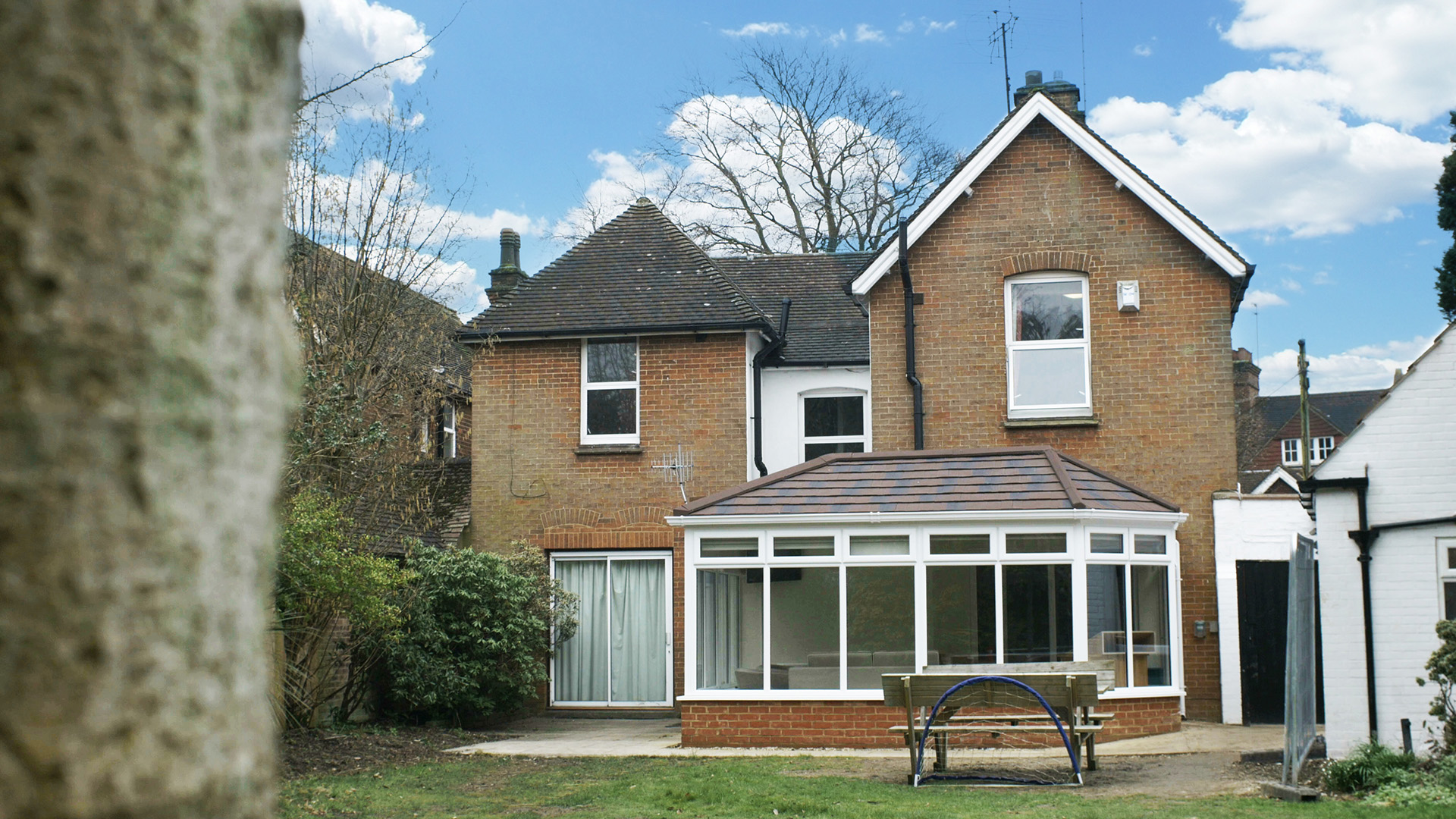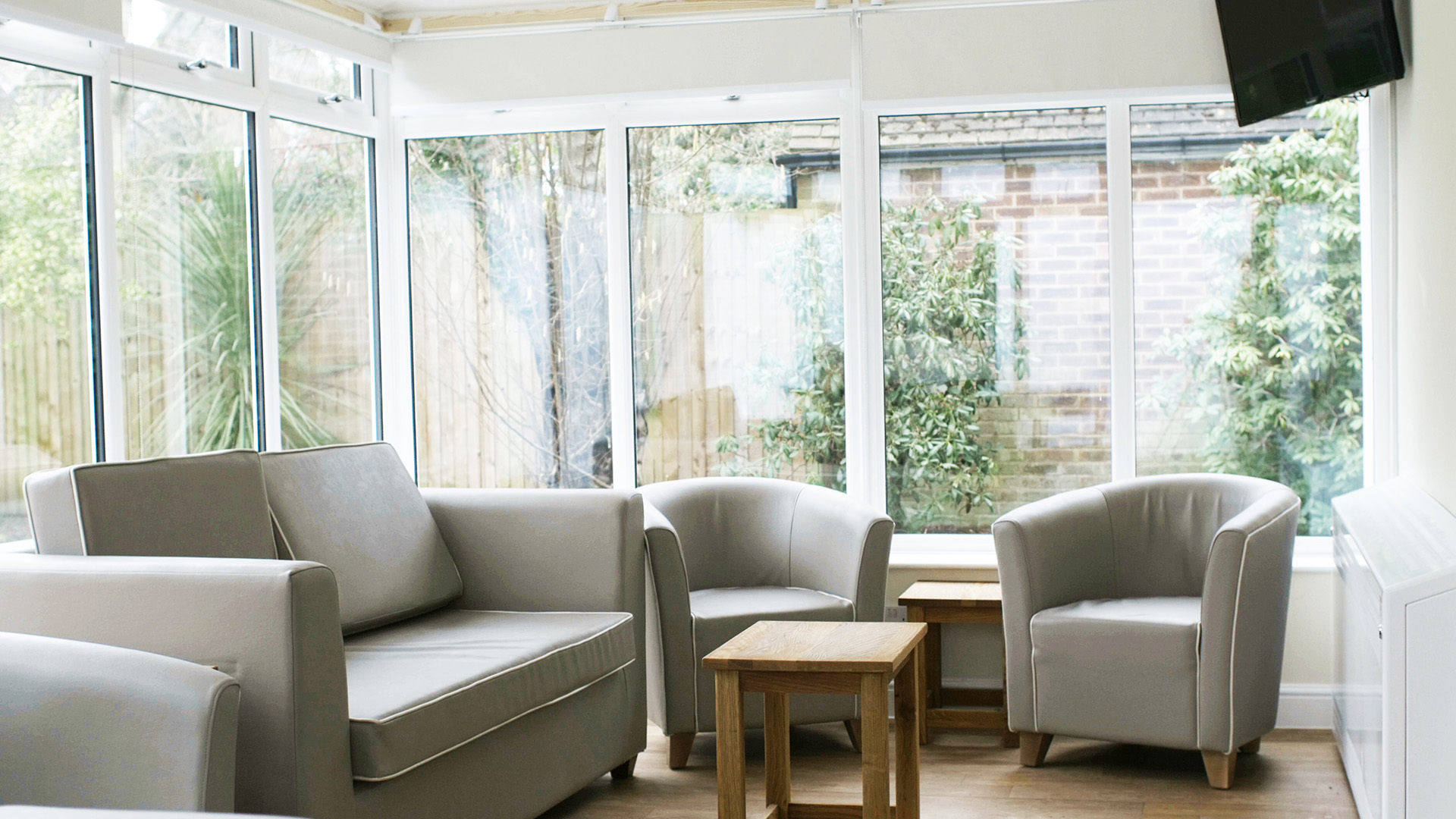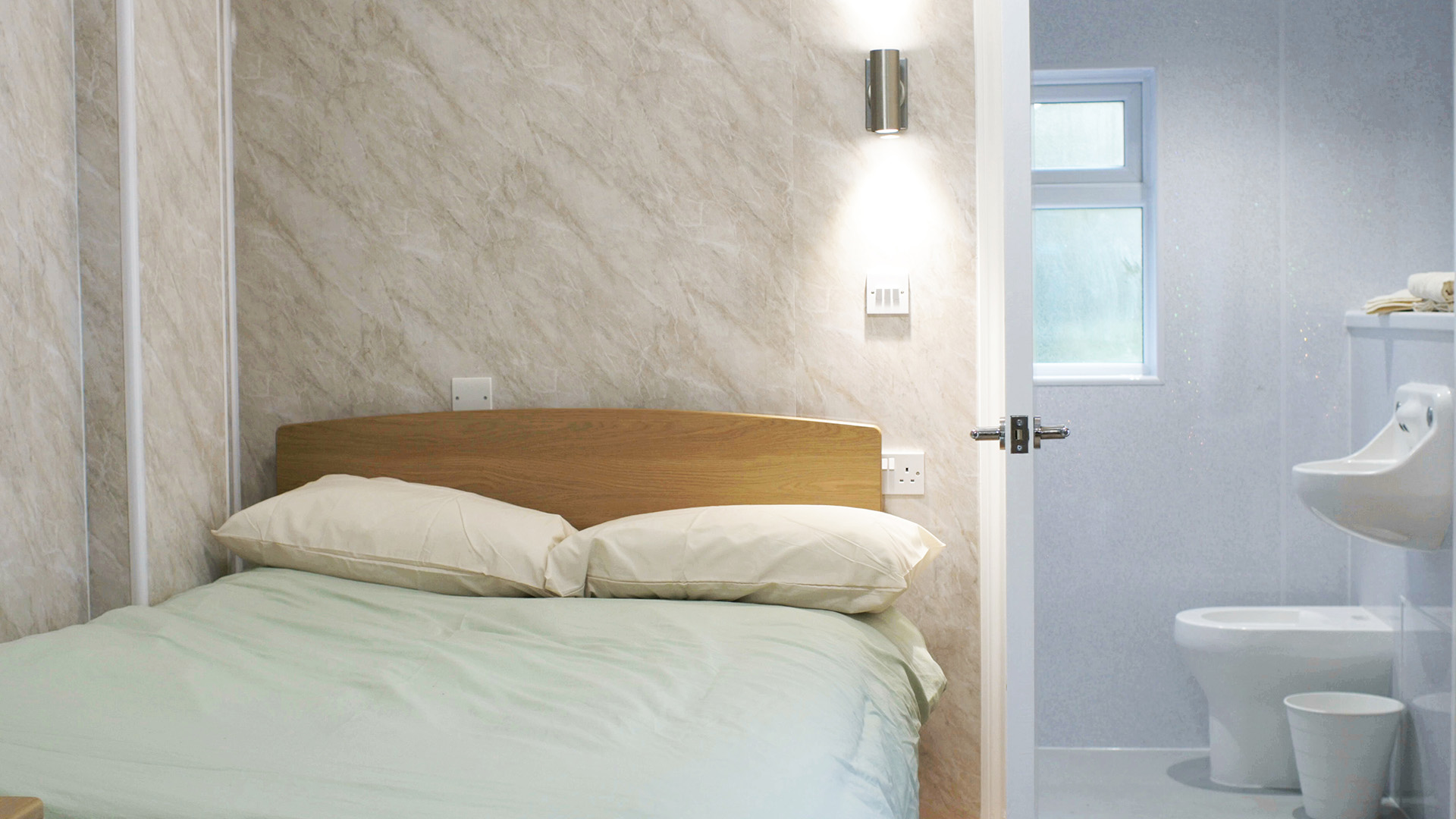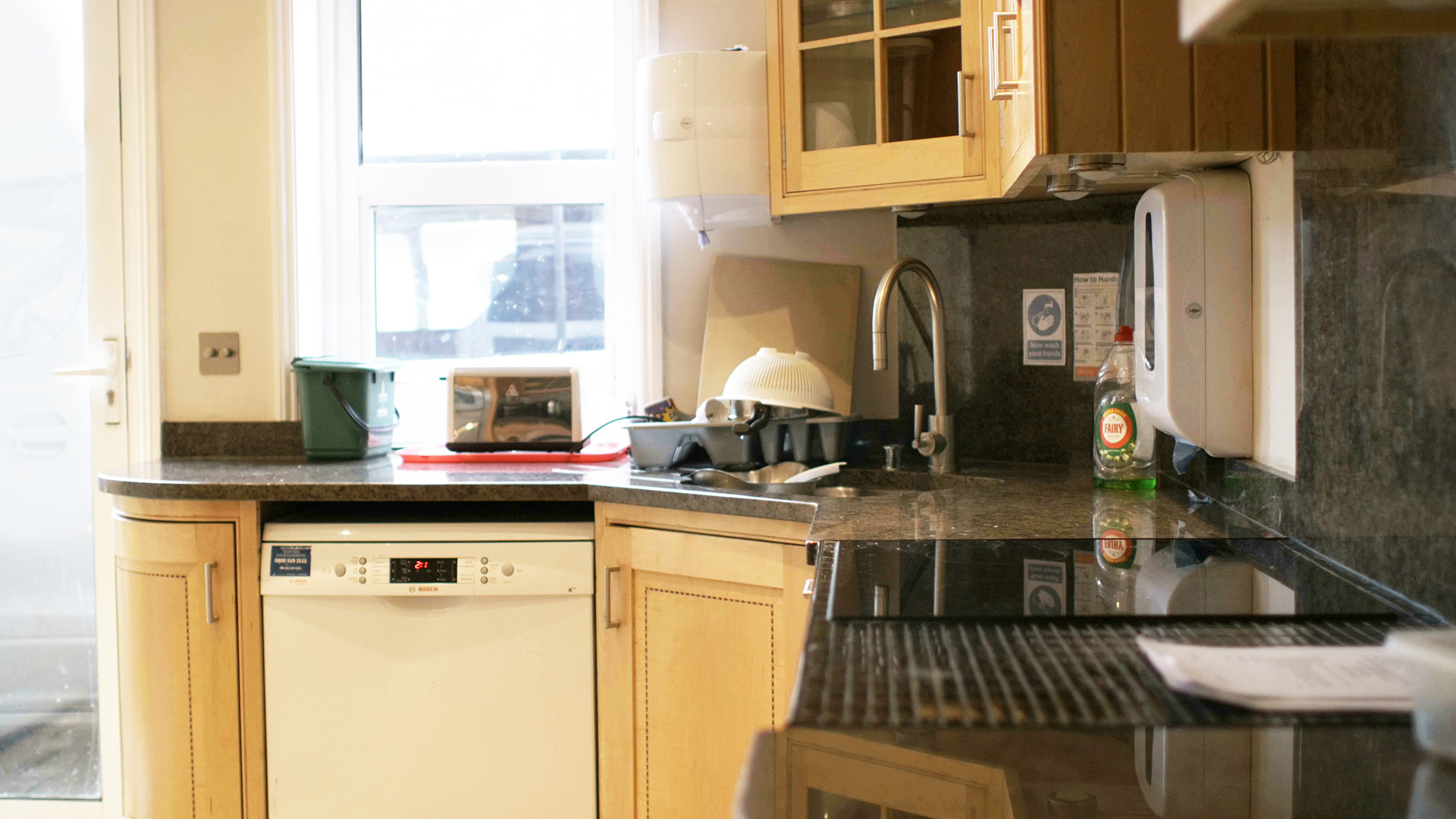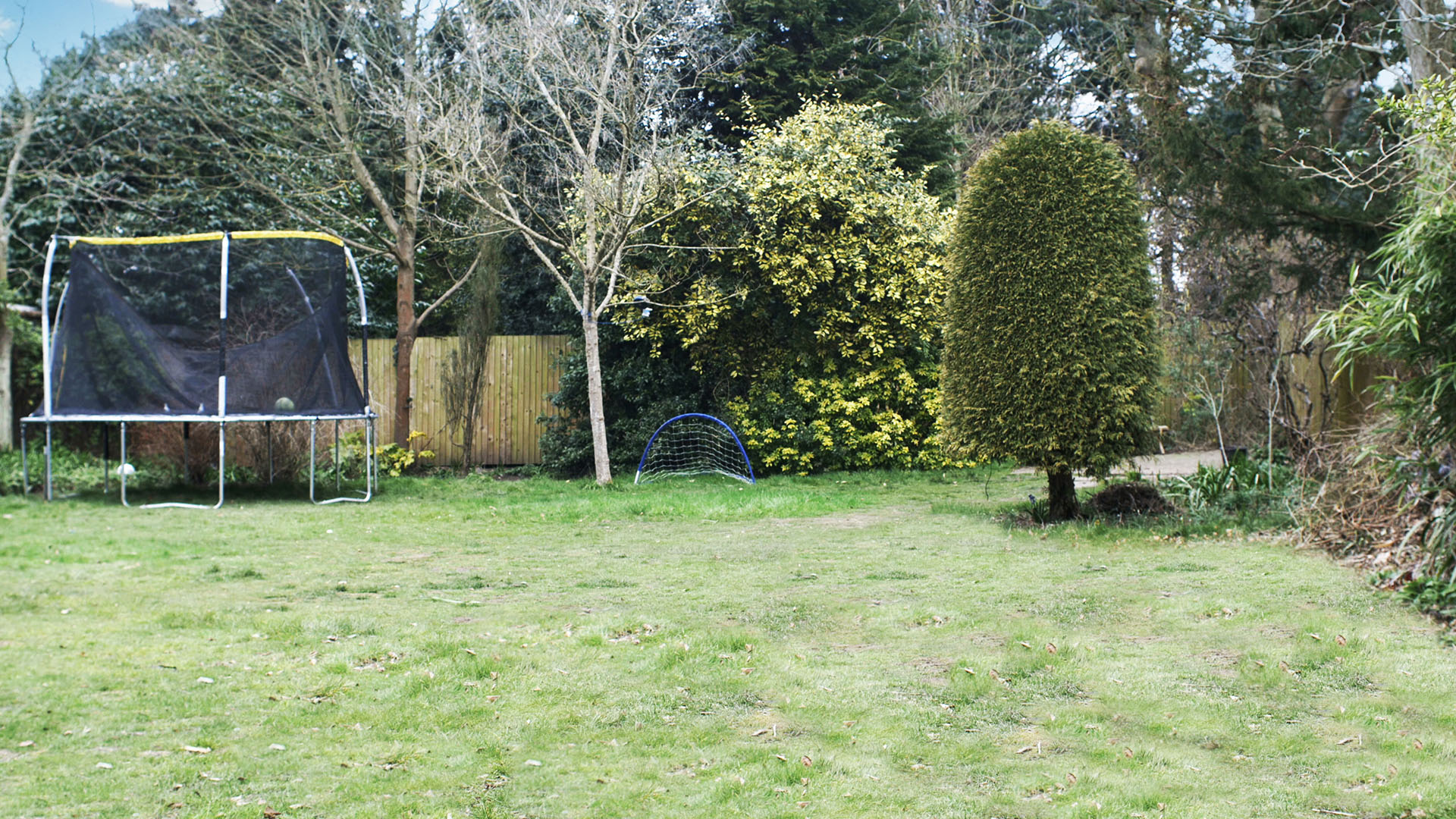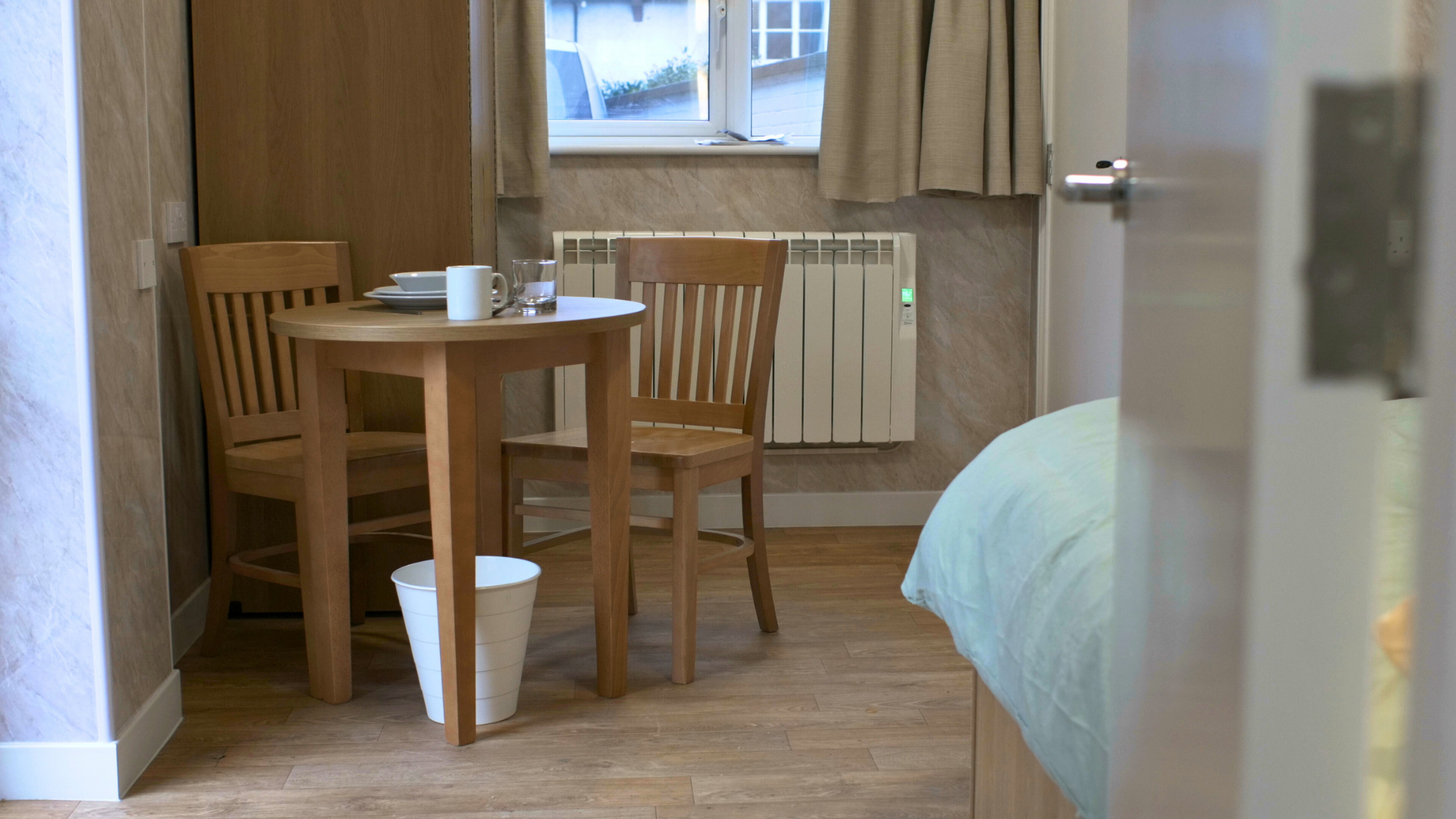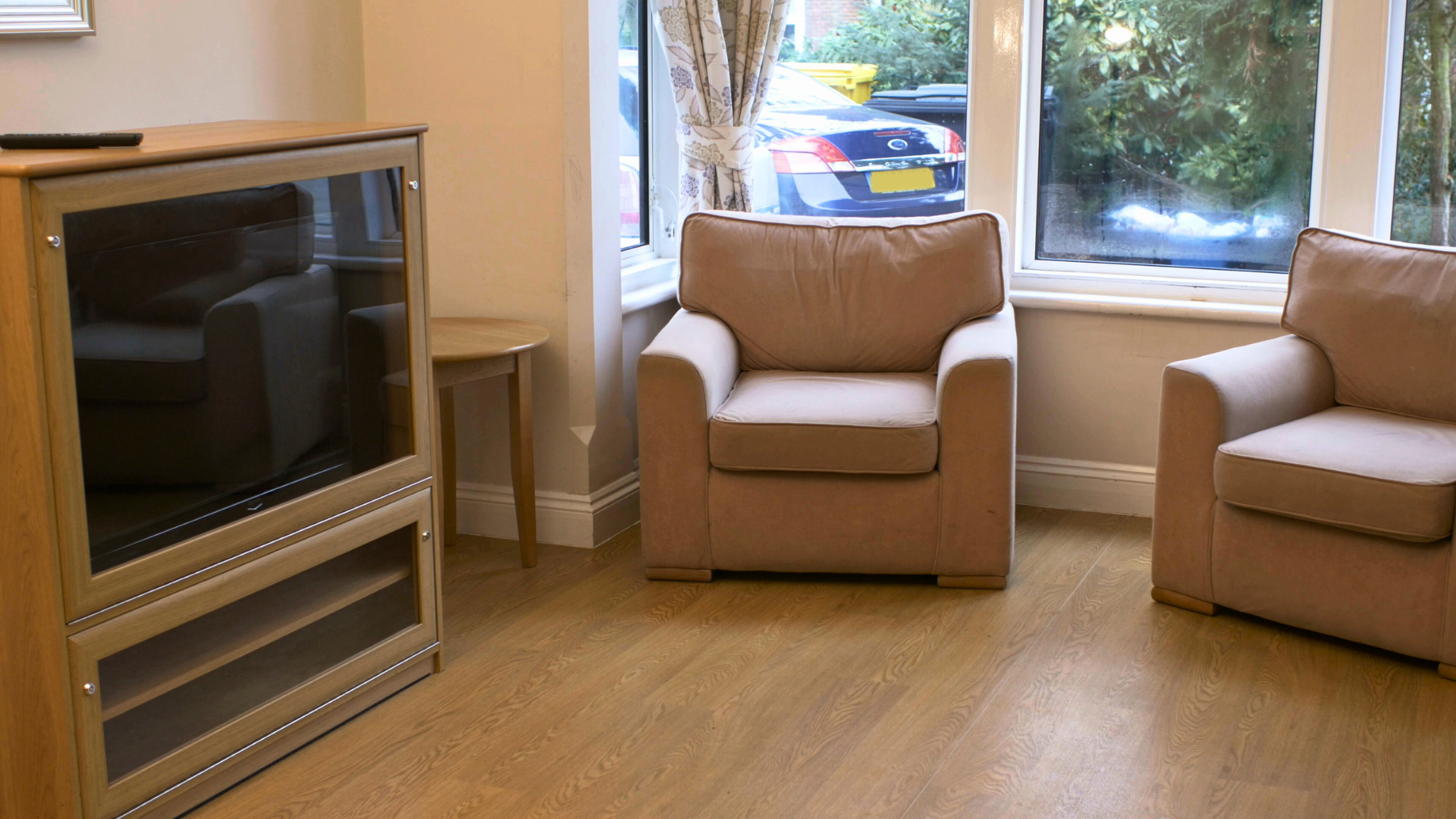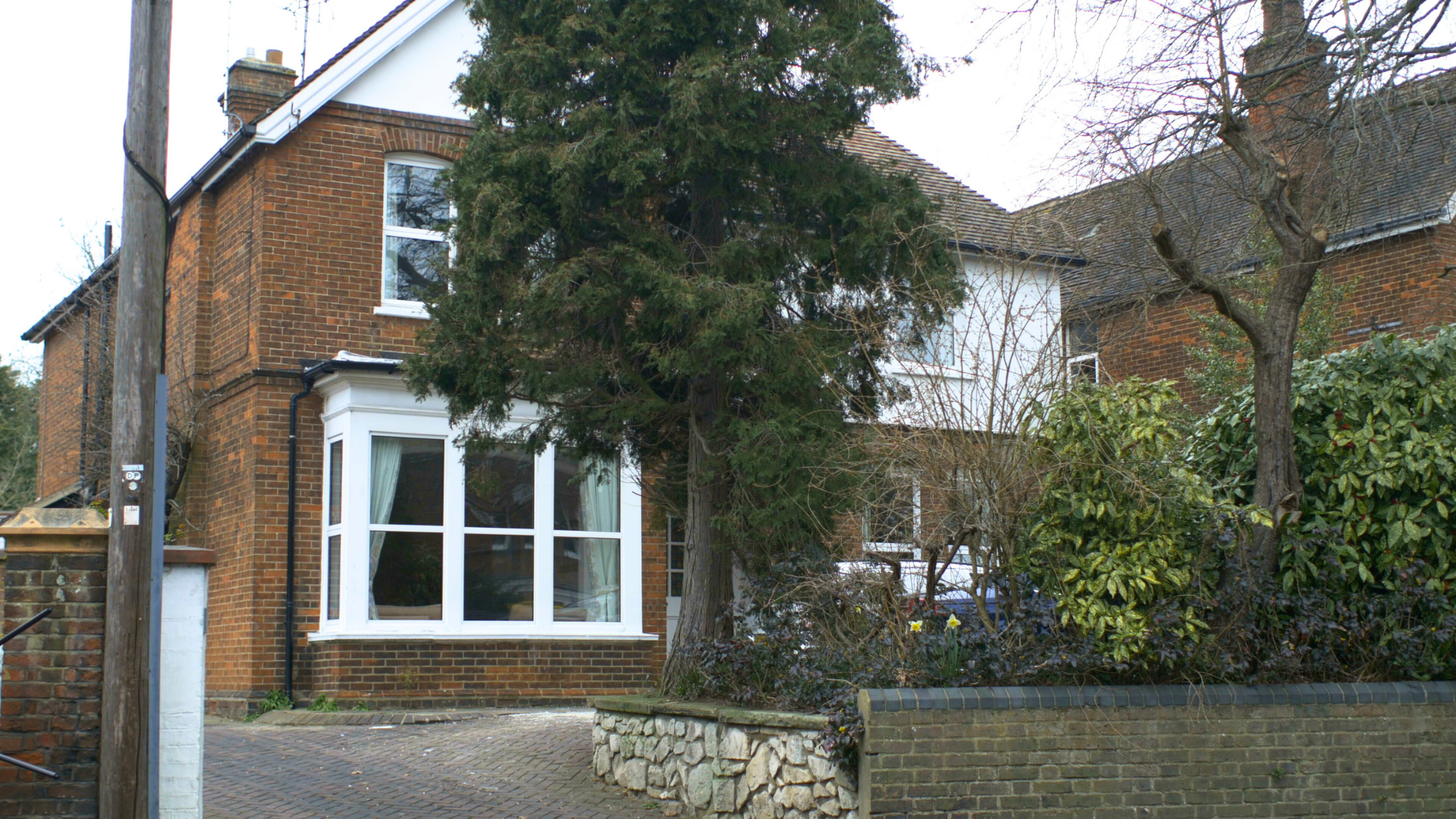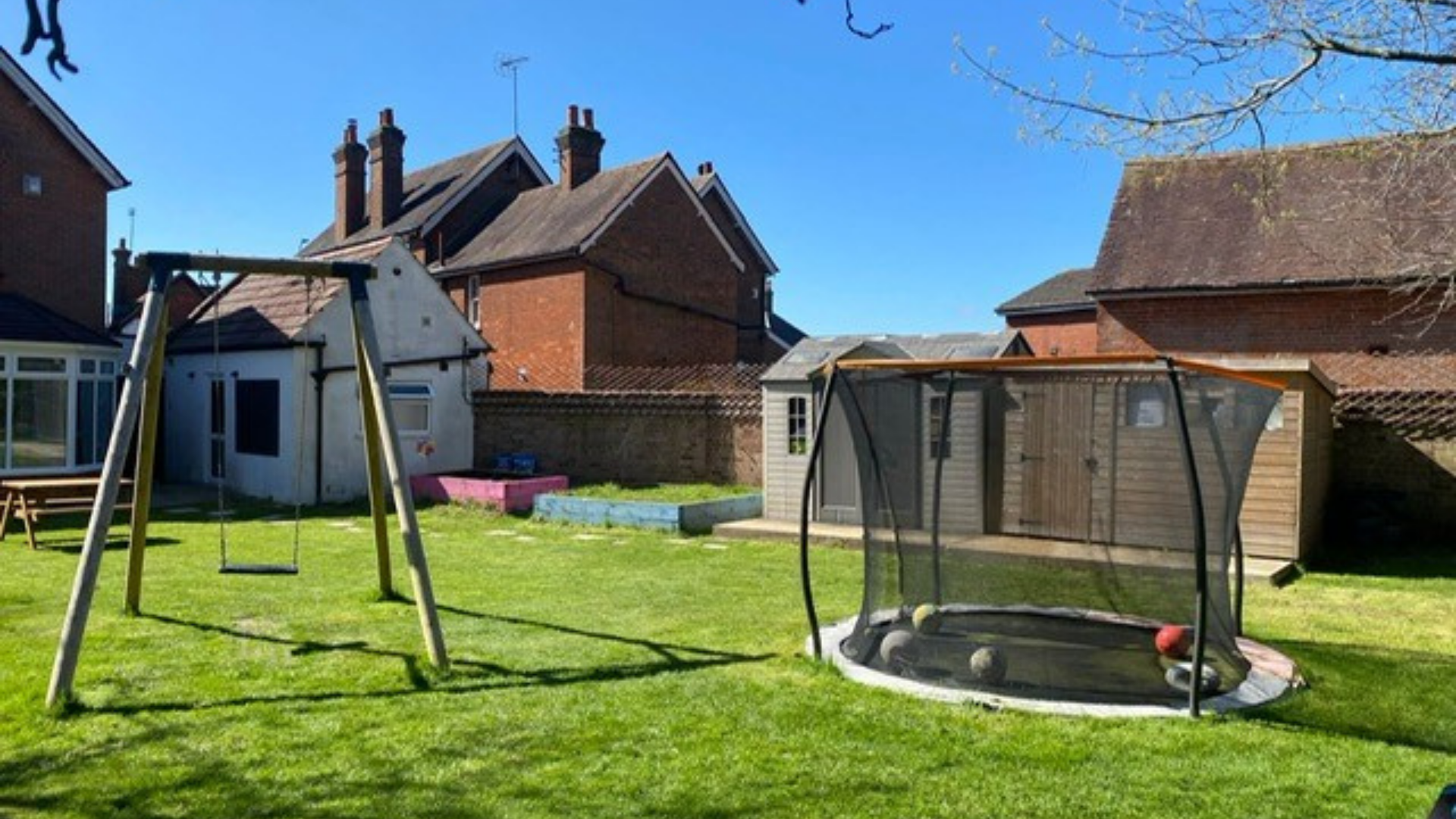About this location
Julian’s House is located in Stevenage Old Town, in Hertfordshire. It offers residential support for six males who are autistic. We are in a semi-residential road, within easy walking distance to the Old Town and industrial area.
Our team are dedicated to promoting independence and life skills to support the people we care for to live their lives to the fullest, as independently as possible. We want them to achieve their goals that they previously thought unachievable.
We can also support those who have:
- A learning disability
- Difficulties with communication
- Moderate behaviours that challenge
- Epilepsy
- Bipolar disorder
- Obsessive compulsive disorder (OCD)
- Generalised anxiety disorder
- Sensory needs
Services at a glance
Click here to enable this content
About our service
Our facilities and environment
Julian’s House is made up of a Victorian detached property, with accommodation for 6 adults and a variety of communal spaces.
Two bedrooms are on the ground floor, and there are an additional four on the first floor. All of the bedrooms have en-suite facilities, and residents can also use a large communal bathroom. There is also a large lounge, dining room and conservatory which residents can use to enjoy looking at the landscaped garden.
In summary, we offer:
- A large lounge with plenty of seating
- Kitchen and dining room
- Utility room
- Communal bathroom
- Conservatory
We also have a large garden, complete with:
- Secure fencing
- Lawn
- Patio
- Communal seating
- Shelter
- Wheelchair access
- Wildflower area
- Swings
- Trampoline
- Resident’s shed
- Garden games
- Football
- Marquee
Our bedrooms
All of our bedrooms are comfortable, welcoming and can be personalised to individual tastes. Our bedrooms have:
- En-suite facilities, containing either a shower or a wet room
- Robust, low arousal furniture
- Wheelchair access
Our approach to support
Everybody who lives at Julian’s House has their own person-centred care plan, which is co-produced with input from the individual, their family members and professionals involved in their care. We aim to help everyone in our care to make their own choices about the support they receive. This may include support in a number of areas, such as going out in the community, personal care, cooking and cleaning, and maintaining family relationships.
We also have support from a local multidisciplinary team to offer support techniques which include:
- Positive behaviour support (PBS)
- Occupational therapy
- Physiotherapy
- Speech and language therapy
- Psychology input
In addition, we use tools such as the Outcomes Star™ and Active Support to support our residents to achieve their goals. The lengths of the placements that we offer at Julian’s House can be medium or long-term residential, depending on the needs of each person.
Activities
Everyone who lives at Julian’s House has their own personalised activities planner and are encouraged to take part in activities which are meaningful and fulfilling to them. Our dedicated team organise a variety of activities at the home, as well as out in the community.
We focus on supporting our residents to grow their independence. For some people, this may mean developing their daily living skills within the home. For others, this could be accessing work or educational opportunities in the local community.
Exclusion profile
- Females, as we are a male only home
- Males over the age of 65
Pathways
Through our network of healthcare, residential and supported living facilities, we provide unique care pathways which help the people we support to progress towards greater independence. Every individual we support is provided with a bespoke pathway plan, tailored according to their individual needs. We aim to ensure that each person is supported to live a fulfilling and active life in the community.
Our team
Our highly experienced team consists of:
- Service manager
- Deputy manager
- Support workers
- Senior support workers
- PBS practitioner
- Housekeeper
Our team receive specialist staff training, designed to meet the needs of each individual we support. This includes:
- Epilepsy awareness training
- PBS training
- Autism spectrum specialist training
- Makaton training
- Dysphagia training
- Learning disability awareness training
- Mental health awareness training
- Introduction to Autism training
A message from our site leader

At Julian’s House, we provide person-centred support, along with a personalised support plans and activity planners, to ensure that our residents are happy, safe, and enjoy their lives to the fullest. This has meant that our residents have been able to achieve things that were once thought unattainable. This includes going on holidays, attending college courses, becoming a member of a local football team, visiting new places, attending concerts and festivals.
Julian’s House’s site leader
Family and friends FAQs
How does home leave work?
We support our residents to attend family events and visit home. We will work with the resident and their relatives to ensure possible risks are managed and that everyone is supported.
Can friends and families visit?
Family and friends are welcome to visit and participate in activities at the home. We do request that they are organised in advance because some residents may need extra support as they can become stressed or anxious when unknown visitors arrive. No overnight stays are permitted.
Will I be involved and kept up to date with the progress of my loved one’s care and support?
Yes, we strive to keep the loved ones of our residents involved in their care. We can arrange regular catch-ups either in person or via telephone, to ensure families are kept informed. Families may also be involved in part of the support planning, particularly where best interest decisions are required.
Will my loved one be able to have a phone or call me?
Everyone who stays with us can use our cordless phones, which are positioned at various points around the property, at any time. In addition, we can support our residents to get their own mobile phone or tablets.
What are the bedrooms like?
Bedrooms are all furnished, and residents are supported to personalise them to suit their needs and wishes. Some of the furniture has been purchased to suit the needs of the service specification.
Are external doors kept locked?
Yes, due to the nature of the service, our external gates are locked using a fingerprint system. However every resident will be risk assessed to determine the level of security needed. We have a large secure garden area and courtyard where individuals can freely exit and enter the building.
What do residents eat and how do meal times work?
Whenever they like, residents are supported to choose and prepare what they want to eat. Support is also available if they need help preparing their own food. Family members and our nutritionists give us valuable advice on special dietary requirements which can also be catered for.
How does laundry work?
Our team will ensure that residents always have access to clean clothes and bedding. We have a utility room with laundry facilities, which residents make use of either independently or with the assistance of their support staff.
Who does the housekeeping and domiciliary tasks?
Our care team support our residents to carry out these tasks. We also have a housekeeper on site to support residents who are unable to clean for themselves.
Is there anything they can’t bring or have?
We would ask that residents do not bring valuables such as family heirlooms to our home, as we cannot guarantee their safety, although we do have a small safe for resident's valuable belongings. We may place restrictions on some items where the risks cannot be appropriately managed, such as non-approved drugs and medications, solvent-based products and lighters.
How do activities work?
Everyone we care for has a tailored activities planner. This will include activities that they enjoy including both in-house and in the community. Their key worker may use a variety of communication tools to ensure the resident can have an input into the planning of activities.
How will residents be supported with their behavioural needs?
Julian’s House has an on-site PBS practitioner, who supports residents with their behavioural needs. In addition, we use the PROACT-SCIPr-UK® framework, which means we focus on proactive strategies, rather than physical intervention. We require our care plans which include restrictions to be assessed frequently.
Do residents and families have an input into the care plans?
We work with social workers, family members and residents to develop care plans which are in the best interests of our residents. We use a variety of communication tools and work with health professionals to aid each resident in having a say about every aspect of their care. Care plans are regularly reviewed, and family members will be asked for their input.
What are the car parking facilities?
There is residential street parking that offers free parking about two minutes’ walk away.
What is the smoking policy?
Residents can smoke by the designated smoking area in the back garden, which has a shelter. We don’t permit smoking inside the building, and this includes vapes. Residents are able to buy cigarettes and vapes at the shops, if this is what they choose and it has been agreed with all relevant parties.
What are your fees and how are they funded?
Our fees can vary, and are based on an assessment of each individual's needs. Many people are eligible for financial help towards the cost of support, and this funding can be accessed by contacting your local authority. Once funding has been agreed, we will work with your local care team to put together a bespoke package of care. Please note, referrals for NHS or Local Authority funded services must come from a referring organisation.
How to make a referral
Our service provides high quality support to people with varying levels of need. Referrals can be made through the individual’s social care team or, if relevant, their local health authority. If you are a professional looking to make a referral, please call us or fill in our enquiry form.


